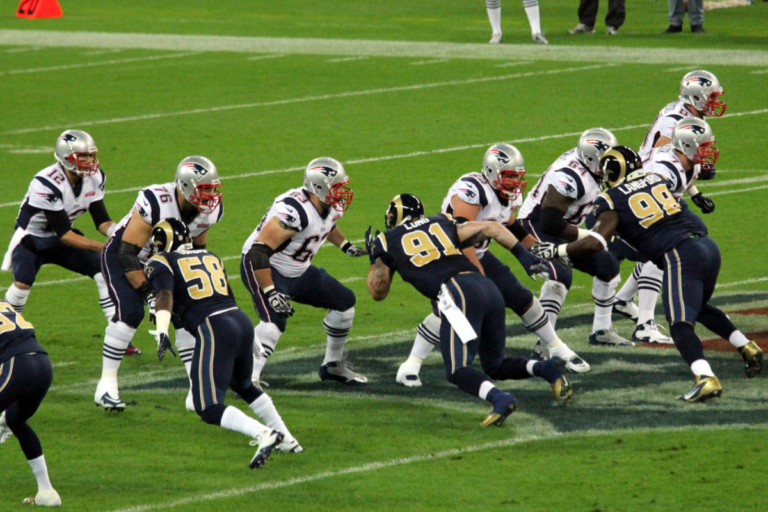Sports Performance: Exploring the Impact of Genetics on Athletic Abilities
The universe of sports has forever been an intriguing field where competitors push the limits of human execution. As observers, we wonder about their mind-boggling accomplishments and can’t help thinking about what separates them from the rest. Is it their tireless preparation, mental determination, or something else?
Lately, researchers have dug further into the job of hereditary qualities in deciding athletic capacities. In this blog, we will investigate the effect of hereditary qualities on sports execution and how it shapes the fate of athletic preparation and ability recognizable proof.
The Hereditary Premise of Athletic Execution
It’s a well-known fact that hereditary qualities assume a critical part in deciding a person’s actual characteristics, for example, level, bulk, and bone thickness. These elements can impact a competitor’s presentation in different games. For example, taller people might enjoy a benefit in B-ball, while those with higher bulk might succeed in strength-based sports like weightlifting.
Late headways in hereditary exploration have recognized explicit qualities that add to athletic execution. One such quality is ACTN3, which is liable for delivering a protein called alpha-actinin-3. This protein is found in quick-jerk muscle strands, which are critical for creating hazardous power and speed. Studies have shown that people with a particular variation of the ACTN3 quality are bound to succeed in power and run-based sports.
One more quality of interest is the Pro quality, which impacts perseverance execution. A specific variation of this quality is related to further developed oxygen conveyance to muscles and upgraded perseverance limit. Competitors with this hereditary variation are bound to succeed in perseverance-based sports like significant distance running or cycling.
These are only a couple of instances of the numerous qualities that can influence athletic execution. It’s vital to take note that hereditary qualities aren’t the sole determinant of progress in sports. Ecological variables, like preparation, sustenance, and mental planning, likewise assume a critical part in molding a competitor’s capacities.
The Eventual Fate of Ability ID and Preparing
As how we might interpret the hereditary variables impacting sports execution develops, so does the potential for more designated ability ID and preparing programs. Mentors and sports associations can utilize hereditary data to recognize people with a higher probability of succeeding in unambiguous games, permitting them to zero in on their assets on supporting these gifts.
In addition, customized preparing projects can be created given a competitor’s hereditary profile. For instance, a competitor with a hereditary inclination for high-intensity games might profit from a preparation program that underlines oxygen-consuming molding and endurance-building works out. On the other hand, a competitor with a hereditary inclination for power-based sports might profit from a program that spotlights on strength and unstable power improvement.
Moral Contemplations
While the expected advantages of involving hereditary data in sports are unquestionable, it likewise raises moral worries. Issues like hereditary segregation, protection, and the potential for making a hereditary “weapons contest” in sports should be painstakingly thought of.
It’s crucial to find some kind of harmony between utilizing hereditary data to upgrade athletic execution and it is not crossed to guarantee moral limits. This might include laying out rules and guidelines to administer the utilization of hereditary data in sports and advancing straightforwardness and decency in the ability to distinguish proof and preparing processes.
Sports execution is a complicated and diverse peculiarity that is impacted by various elements, including preparation, nourishment, brain research, and hereditary qualities. While the initial three variables are surely known and generally examined, the job of hereditary qualities in athletic capacities is as yet a subject of progressing examination and discussion. In this blog, we will investigate the effect of hereditary qualities on sports execution and uncover the science behind this captivating subject.
In any case, it is critical to comprehend that hereditary qualities assume a huge part in deciding a person’s actual characteristics, for example, level, weight, bulk, and bone thickness. These characteristics, thusly, can straightforwardly affect athletic capacities. For instance, taller people will more often than not have a more extended step length, which can be profitable in sports like b-ball and volleyball. Essentially, people with a higher level of quick jerk muscle filaments will generally succeed in dangerous, power-based sports, for example, running and weightlifting.
Perseverance-Based Sports
Nonetheless, the connection between hereditary qualities and sports execution isn’t direct all the time. While specific hereditary qualities might present benefits in unambiguous games, they may likewise accompany compromises in different regions. For instance, people with a hereditary inclination for high bulk might battle with perseverance-based sports like significant distance running. Furthermore, ecological factors, for example, preparation and sustenance can likewise assume a huge part in deciding athletic capacities, even in people with comparable hereditary profiles.
Perhaps of the most very concentrated on hereditary figure sports execution is the ACTN3 quality, which codes for a protein called alpha-actinin-3 that is found solely in quick jerk muscle strands. People with a particular variation of this quality, known as the “RR” genotype, will generally have a higher level of quick jerk muscle filaments and are bound to succeed in power-based sports, for example, running and bouncing. Nonetheless, it is vital to take note that having the RR genotype isn’t an assurance of athletic achievement, and numerous different variables, like preparation and sustenance, likewise assume a critical part.
One more hereditary element that has been connected to sports execution is Expert quality, which codes for a catalyst called angiotensin-changing over compound that is associated with a controlling pulse. People with a particular variation of this quality, known as the “II” genotype, will generally have a more significant level of perseverance and are bound to succeed in sports like significant distance running and cycling. Be that as it may, similarly to the ACTN3 quality, having the II genotype isn’t an assurance of athletic achievement, and numerous different factors likewise assume a critical part.
hereditary qualities on sports
While the effect of hereditary qualities on sports execution is as yet a subject of continuous examination, obviously hereditary qualities can assume a critical part in deciding a person’s athletic capacities. Notwithstanding, it is vital to recall that hereditary qualities are only one of many elements that add to sports execution and that ecological factors, for example, preparation and nourishment can likewise assume a huge part. Furthermore, it is critical to try not to involve hereditary qualities as a defense for segregation or rejection in sports, as this can prompt uncalled-for and out-of-line rehearses.
All in all, the science behind sports execution is a perplexing and complex point that is impacted by different elements, including hereditary qualities, preparation, nourishment, and brain research. While hereditary qualities can assume a huge part in deciding a person’s athletic capacities, it is critical to recall that natural factors likewise assume a critical part and that hereditary qualities ought not to be utilized as a legitimization for segregation or prohibition in sports. By understanding the complicated interaction between hereditary qualities and sports execution, we can acquire a more profound appreciation for the unbelievable accomplishments of physicality that we witness consistently.
Conclusion
The science behind sports execution is a quickly developing field, with hereditary qualities assuming an undeniably critical part in how we might interpret athletic capacities. As we keep on revealing the hereditary variables that add to sports execution, the potential for more designated ability distinguishing proof and customized preparing programs turns out to be progressively evident.
Notwithstanding, it’s significant to move toward this new boondocks with mindfulness and thought for the moral ramifications it presents. By finding some kind of harmony between utilizing hereditary data and keeping up with moral guidelines, we can keep on pushing the limits of human execution in sports while guaranteeing a fair and comprehensive battleground for all.







